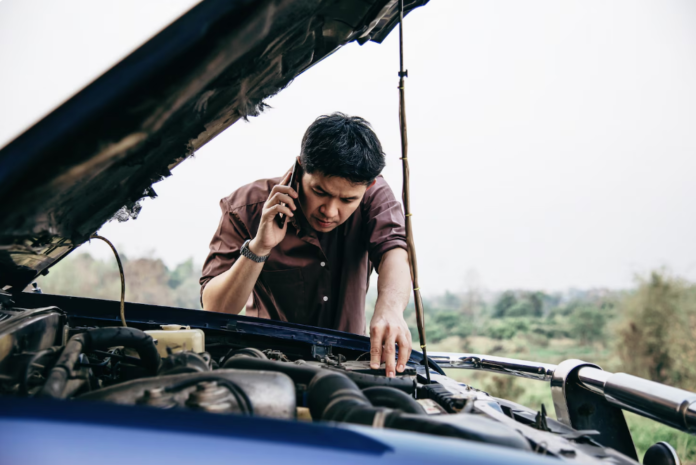Proper car maintenance is essential for ensuring your vehicle operates efficiently and lasts for many years. Regular upkeep not only helps prevent breakdowns but also improves fuel efficiency, enhances safety, and increases the resale value of your car. However, with the busy lives we lead, it can be easy to overlook certain aspects of car care. Fortunately, by following a few simple maintenance tips, you can keep your vehicle in top condition and avoid expensive repairs in the future.
In this article, we’ll explore essential car maintenance tips that every car owner should follow. From checking fluid levels to maintaining tire pressure, these tips will help you keep your vehicle running smoothly for the long haul.
Regular Oil Changes
One of the most crucial maintenance tasks for any vehicle is changing the oil regularly. Oil lubricates the engine, reducing friction between moving parts and preventing overheating. Over time, oil can become contaminated with dirt, debris, and other impurities, which can cause the engine to wear out faster.
Why Regular Oil Changes Are Important
When you fail to change the oil regularly, it can lead to engine problems such as sludge buildup, overheating, or even complete engine failure. The frequency of oil changes depends on your vehicle’s make and model, but generally, it’s recommended to change your oil every 3,000 to 7,500 miles.
If you’re unsure when to change your oil, always refer to your owner’s manual for the recommended schedule. Additionally, many modern vehicles come with an oil change light or reminder to notify you when it’s time for an oil change.
For more information on car care, visit Max Auto Depot.
Check and Replace the Air Filter
The air filter in your car plays a crucial role in maintaining engine performance. It prevents dirt, dust, and debris from entering the engine, ensuring that only clean air is used for combustion. A clogged or dirty air filter can reduce engine efficiency, decrease fuel economy, and even cause your car to stall.
How to Check the Air Filter
To check the air filter, simply locate it (usually near the engine bay or intake system) and remove it. Hold the filter up to the light—if you can’t see light passing through, it’s time to replace it. A clean air filter allows for proper airflow, resulting in better fuel efficiency and engine performance.
It’s recommended to replace the air filter every 12,000 to 15,000 miles, but this can vary depending on your driving conditions. If you frequently drive in dusty environments, you may need to replace the air filter more often.
Maintain Tire Pressure
Maintaining proper tire pressure is not only vital for safety but also for your vehicle’s performance. Under-inflated tires can cause excessive wear, increase fuel consumption, and decrease handling ability. On the other hand, over-inflated tires can lead to a rough ride and increased risk of blowouts.
How to Check Tire Pressure
Use a tire pressure gauge to check the pressure in each tire, including the spare. The ideal tire pressure is usually listed on a sticker inside the driver’s door frame or in the owner’s manual. It’s important to check tire pressure regularly, especially before long trips or when the weather changes.
For optimal performance, check the tire pressure once a month and adjust it to the manufacturer’s recommendation. Also, inspect your tires for signs of damage or wear, such as cuts, bulges, or worn tread. Rotating your tires every 6,000 to 8,000 miles can also help ensure even wear and prolong their lifespan.
Balancing and Aligning Your Tires
If you notice that your car pulls to one side or if your steering wheel is vibrating, it might be time for a tire alignment or balancing. Proper tire alignment ensures that your tires make contact with the road evenly, reducing uneven tire wear and improving vehicle stability.
For more tips on tire maintenance, you can visit Max Auto Depot’s car care maintenance section.
Check and Maintain the Battery
A dead battery is one of the most common causes of car breakdowns. Your car’s battery provides the electrical power needed to start the engine and run the vehicle’s electrical systems. Over time, batteries lose their charge, and extreme weather conditions can further shorten their lifespan.
How to Maintain Your Car Battery
- Check for Corrosion: Inspect the battery terminals for any corrosion or buildup. If you notice corrosion, clean it with a mixture of baking soda and water to prevent poor connections.
- Ensure Proper Connections: Make sure the battery cables are tightly connected. Loose connections can lead to starting issues.
- Replace the Battery: Car batteries typically last between 3 and 5 years. If your battery is nearing the end of its lifespan, consider replacing it to avoid being stranded with a dead battery.
If you’re unsure about the condition of your battery, most auto shops offer free battery tests to determine its health.
Keep the Cooling System in Check
Your car’s cooling system, which includes the radiator, hoses, and coolant, prevents the engine from overheating. If the cooling system isn’t functioning properly, it can lead to engine damage and costly repairs.
How to Maintain Your Cooling System
- Check Coolant Levels: Regularly check the coolant levels in the radiator and reservoir. If the coolant level is low, add the manufacturer-recommended coolant.
- Inspect the Radiator: Inspect the radiator for leaks, cracks, or blockages. If you notice any issues, get it checked by a mechanic to prevent overheating.
- Flush the Radiator: Over time, coolant can become dirty and less effective. Flushing the radiator and replacing the coolant every 2 to 3 years will help maintain the system’s efficiency.
A well-maintained cooling system ensures that your engine runs at optimal temperatures, preventing overheating and extending the life of your vehicle.
Regular Brake Inspections
Brakes are one of the most crucial safety features in your vehicle, and regular brake maintenance is essential for ensuring your safety on the road. Worn-out brake pads or damaged brake components can lead to decreased braking performance, increasing the risk of accidents.
How to Check Your Brakes
- Listen for Noises: If you hear squeaking, grinding, or any other unusual sounds when you apply the brakes, it may be time to have your brake pads inspected or replaced.
- Check Brake Fluid: Ensure that your brake fluid is at the proper level. Low brake fluid can lead to reduced braking power.
- Inspect Brake Pads: Brake pads wear out over time, so it’s important to check them regularly. Most experts recommend replacing them every 25,000 to 50,000 miles, depending on your driving habits.
FAQs About Car Maintenance
1. How often should I change my car’s oil?
The general recommendation is to change your car’s oil every 3,000 to 7,500 miles, depending on your car’s make and model. Refer to your owner’s manual for the manufacturer’s specific oil change interval.
2. What should I do if my car is making strange noises?
If your car is making unusual noises, it’s essential to have it inspected by a mechanic. Sounds like squeaking brakes, engine knocking, or grinding noises can indicate a mechanical issue that needs attention.
3. How often should I check my tire pressure?
It’s a good idea to check your tire pressure once a month, especially before long trips. Additionally, tire pressure can fluctuate with temperature changes, so checking it during seasonal transitions is essential.
4. When should I replace my car battery?
Car batteries generally last between 3 to 5 years. If your battery is showing signs of wear, such as difficulty starting the car or dimming headlights, it may need to be replaced.
5. How can I prevent my car from overheating?
To prevent overheating, regularly check the coolant levels, ensure the radiator is in good condition, and replace the coolant every 2 to 3 years. Also, avoid idling for long periods or driving in extremely hot conditions.
Conclusion
Regular car maintenance is essential for ensuring the longevity and efficiency of your vehicle. By following these car maintenance tips — from checking fluid levels and maintaining the battery to ensuring proper tire pressure and brake function — you can keep your car running smoothly and avoid costly repairs. Consistent upkeep not only improves the safety and performance of your vehicle but also helps you save money in the long run.
For more detailed car care guides and tips, visit Max Auto Depot and explore the car care maintenance section. For additional resources on home and vehicle maintenance, check out Wheel Start.








